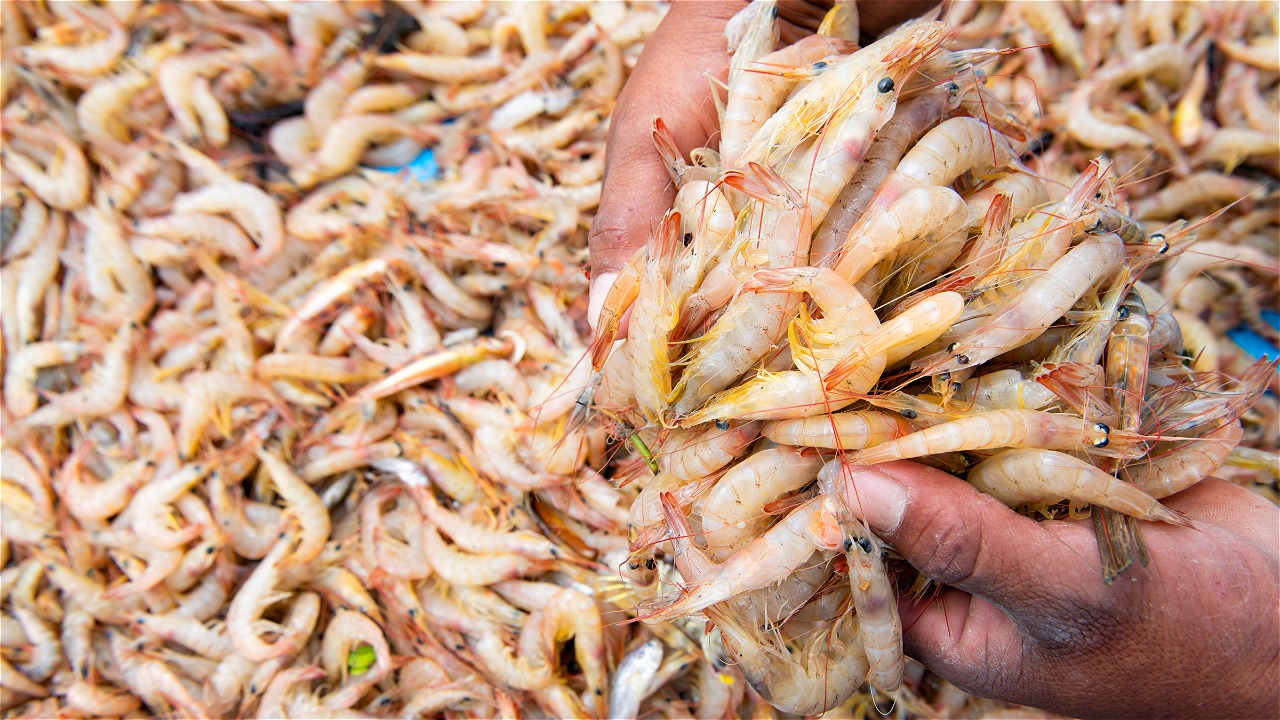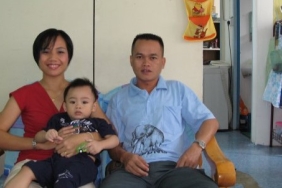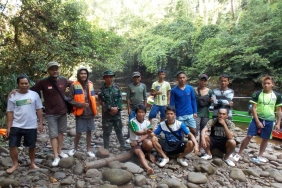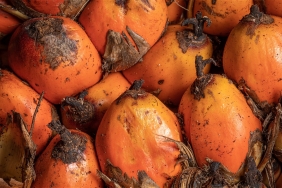WWF-INDONESIA FACILITATING TO RESOLVE THE LEGALITY STATUS OF SHRIMP FARMS IN NORTH KALIMANTAN
Tarakan (17/12) – Based on the current spatial panning of Bulungan Regency, North Kalimantan Province, the Forest Cultivation Zone (Kawasan Budidaya Kehutanan/KBK) and Non-Forest Cultivation Zone (Kawasan Budidaya Non Kehutanan/KBNK) are set upon the locations where shrimp (giant tiger prawn/Penaeus monodon) ponds are sited. The status of the shrimp ponds becomes unclear, and on top of that more than 50% of them are located on those areas. Based on the regulation, the pond siting is inappropriate or in the other word illegal. This status issue should be addressed soon; otherwise the shrimp farms will lose their export markets.
All this time, the cultured giant tiger prawn is the largest export commodity of fisheries sector in North Kalimantan Province where Bulungan Regency serves as the main location of shrimp farms. The quality of the shrimp produced is premium. The global market demand for the shrimp products is high where 99% of the shrimps are exported. The total shrimp production could reach up to 10,000 tons/per year with economic value more than Rp 12 trillion. However, since some areas where the shrimp ponds are sited have designated to be KBK and KBNK, their legalities are questioned, so the demand for the products will surely be declining, and the process to get certified by Aquaculture Stewardship Council (ASC) will be extremely difficult. ASC is a certification body ensuring that shrimp aquaculture activities do not contribute to water pollution, the enhancement and spread of disease, habitat degradation, social impacts to surrounding communities, and so forth. One of the principles applied by ASC is the legality of land and aquaculture farm.
Recently, importers from Europe, US, and Japan are committed to only source ASC-certified products. If the legality of the shrimp farms is still uncertain, shrimp products from North Kalimantan cannot be sold to global markets anymore.
WWF-Indonesia was facilitating the search for legality status of the shrimp farms by convening a workshop, taking in Tarakan Regency, and attended by a number of representatives from Area Development Planning Agency (Bappeda) of North Kalimantan Province, Agricultural and Forestry Department of North Kalimantan, Fisheries and Marine Affairs Offices of Bulungan Regency, Malinau Regency, Tana Tidung Regency, and Tarakan Regency. Farmers and buyers (shrimp processing companies in North Kalimantan) also took part on the workshop.
The workshop resulted in three steps that can be taken to deal with the legality issues. The first step is land status alteration where the mechanisms can be found on Law No. 41/1999 (Forestry) and Law No. 26/2007 (Spatial Planning). The second step is lease mechanism proposed by farmers to the Forestry Minister, which facilitated by the local government, and the last one is the adjustment of North Kalimantan Provincial Spatial Plan. In addition, North Kalimantan Agricultural and Forestry Department and Area Development Agency of North Kalimantan Province is willing to socialise the new arrangements and legalisation system to farmers.
M. Budi Santosa (WWF-ID fisheries officer in Tarakan) also added that he would support socialising the farmers, so they would fully understand the procedures, since most of the farmers were still not aware of things related to legality issues, they were only concerned about aquaculture activities like deploying fingerlings, harvesting, and selling their shrimp products with high price.
(Fajrina Nissa Utami)
For Further Information:
- Candhika Yusuf, Aquaculture Coordinator, Marine Program WWF-Indonesia, +62 8115410512, cyusuf@wwf.or.id
- M. Budi Santosa, Fisheries Officer - Tarakan, Marine Program WWF-Indonesia, +62 8118004430, msantosa@wwf.or.id





